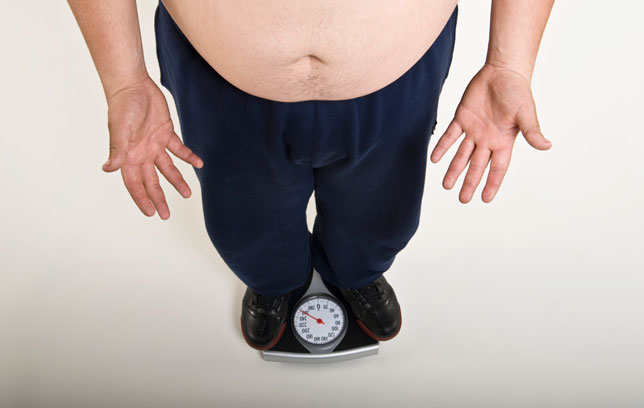Bring Your Meals in to the Light
Forget counting calories—the best weight-loss trick may be watching the clock. Regardless of what foods you choose, limiting the number of hours a day you eat could help you lose weight and improve your health, according to a new study.
Researchers at the Salk Institute for Biological Studies fed the same high-fat diet to two groups of mice. One group was allowed to eat any time they wanted. The result: They gained weight, their cholesterol and blood glucose shot up, and their livers were damaged. Not surprising.
The second group only ate at night (since mice are nocturnal, that’s like daytime for us). These rodents actually lost weight and stayed healthy, even while consuming the equivalent of ice cream and potato chips for every meal. (Want more weight-loss advice? Learn 9 Ways to Banish your Belly.)
“Based on human history and anecdotes, we feel fairly confident that these results will translate to humans,” says study author Satchin Panda, Ph.D., an associate professor in the Regulatory Biology Laboratory at Salk, whose results were published in the journal Cell Metabolism. Before night shifts and 24-hour drive-thrus, humans ate only during the day, he notes, and many of the longest-living cultures still stick to a strict eating schedule.
And there’s biological evidence, too: Chowing down on a late-night meal seems to interfere with our bodies’ natural, finely-tuned cycle of eating and fasting. As a result, our livers keep producing glucose, fat is stored instead of burned, and there’s no time to break down cholesterol.
Still, more studies are needed to prove the link in humans and to define the optimal number of eating hours each day. It could be anywhere from eight to 14, Panda says. (Is your stomach still grumbling? Try these 7 Ways to Silence Your Gut.)
In the meantime, there are other good reasons to avoid nighttime noshing. We often graze at night because we’re stressed out or bored, not because we’re truly hungry, says Alexandra Caspero, RD, owner of weight-management and sports-nutrition service Delicious-Knowledge.com. Make your final meal a satisfying blend of protein, complex carbohydrates, and vegetables so you’re less tempted to reach for the Doritos before bed, she suggests. (Want hundreds of fast, delicious, and satisfying summer recipes? Pick up Grill This, Not That! today.)
Plus, putting down your fork two to three hours before bedtime gives your body time to move food from your stomach to your small intestine, decreasing your risk of acid reflux and helping you sleep more peacefully.
More from MensHealth.com:
- Ditch the Diet, Lose the Weight
- 4 Sneaky Portion-Control Tips
- Seduce Her With Food
-
Stop Late Night Scacking
Overview If your cravings at night make you resemble a rabid raccoon p
-
Diet Strategies: The Cookie Diet
Eat cookies and watch the pounds melt away. Ever heard this claim? Cha
-
The Best Diet to Keep Weight Off
You’ve lost weight, but will you keep it off? A low-glycemic-index die
-
Eating Speed and Obesity
Speed through supper and your gut may pay the price: Finishing your me
-
Two Most Dangerous Words in Nutrition
I just got back from Long Beach California at the Perform Better co
-
15 Fired-Up Foods that Burn Away Pounds
The shortcut to losing weight? Fast food. Not the kind the clown and t
- DON'T MISS
- Transformation: Workaholics Workout Plan
- Human Fat Loss GPS
- Try these Abs Diet chocolate smoothies
- The Truth Behind 5 Food Myths
- Weight Loss: The Ultimate Confidence Booster at
- Eating Out With Your Friends
- Sports Drinks or Coconut Water?
- Weight Loss: Abs Diet Foods and Metabolism
- Losing Weight as a Team:
- Weight Loss: Abs Diet Oatmeal Recipes




